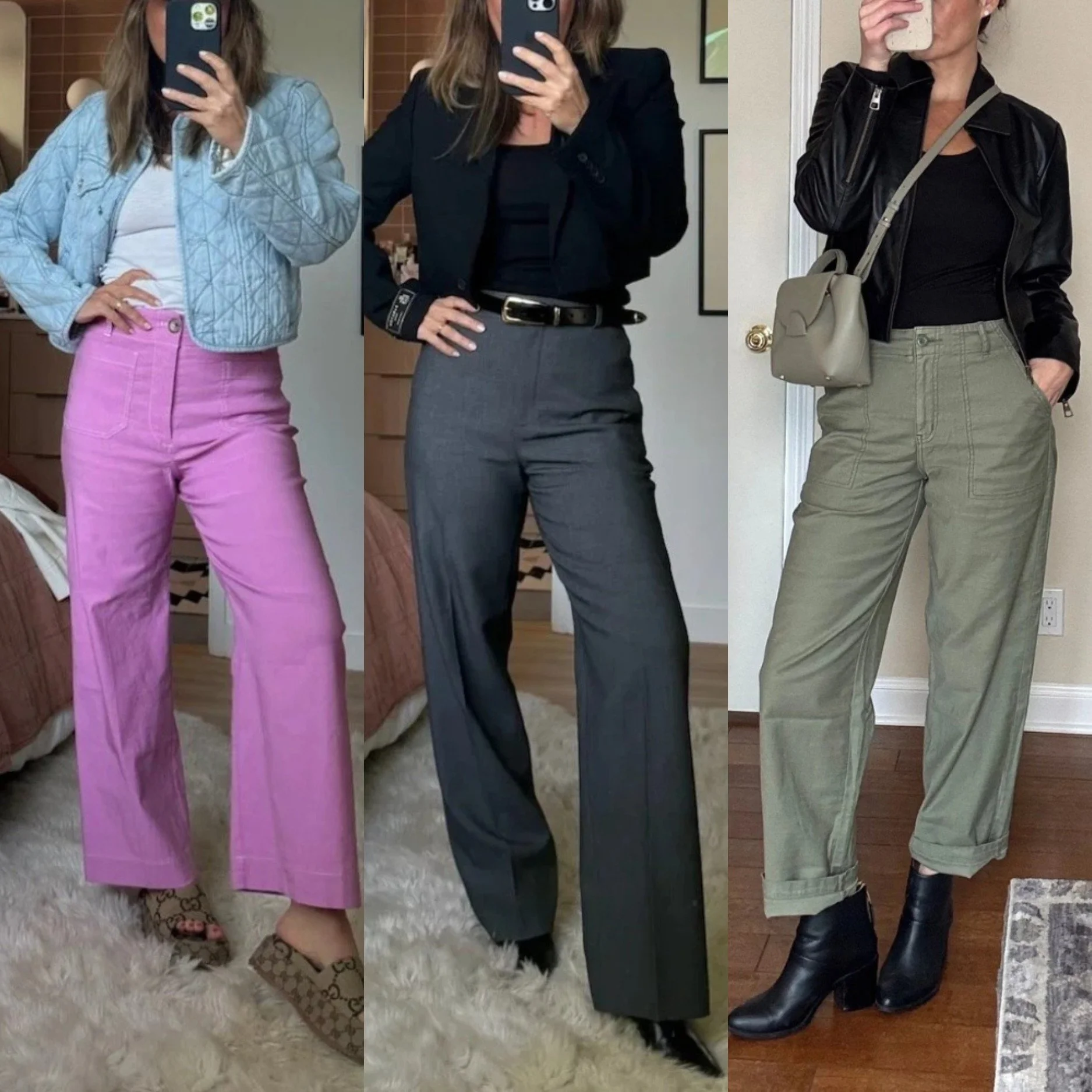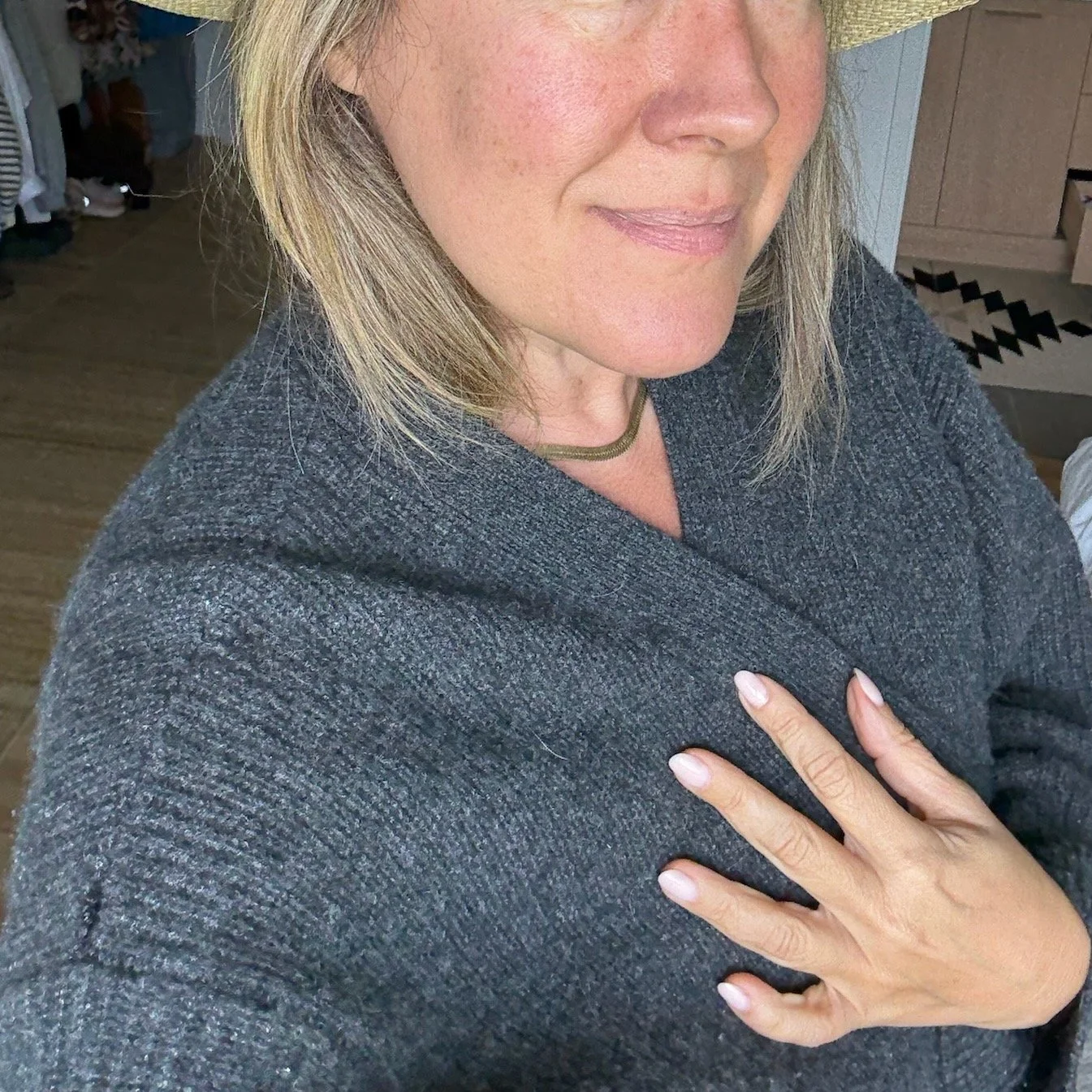The Breastfeeding 15: What It Is And Why We Need To Make It A Thing
by Katie Pace
Congratulations! You had a baby! You successfully grew a human for over nine months just by (basically) eating food. And it wasn’t necessarily even healthy food! Sure you ate a salad or two, but those first three months especially you ate a ton of chips, egg rolls, fried chicken and French fries. And even once you conquered the nausea and were finally able to stomach a real meal that you didn’t pick up from a drive-thru, you listened to your body and gave it what it wanted. And it may have wanted ice cream - not your fault!
Now that the baby is on the outside, you’re still eating. Because once again, you’re growing a human. This time though, it’s with your boobs. But at last you don’t have to worry! Because breastfeeding burns so many calories that the baby/burger weight from pregnancy will melt as fast as the cheese on top of it and counteract those current cupcake cravings just by feeding your kid. EXCEPT! Maybe. It. Won’t. In fact, you not only may NOT shed some of that baby weight, but as you plump up that baby, you TOO may in fact pack on a few el bees.
Yes. It’s true. Like pretty much all things in the life of a female, it’s not a guarantee that just because “they” say your body is going to do XYZ, that it’s foolproof. (And “they” are probably men anyway. *Eye roll*) But it’s one of those things everyone tells you when you’re pregnant. “You should breastfeed because it makes you lose weight!” Well, while there are many health and cost benefits to breastfeeding, doing it to slim down to a pre-baby size may leave you crushingly disappointed. And it may not have anything to do with food.
It happened to me. After giving birth each time, I kept waiting for the calorie-burn to kick in. But instead it just kicked me. In the ego mostly. Sure I shed the initial water weight, but then within a couple weeks I began to, well, soften. As my breasts grew, so did my butt. And face, and arms and legs and belly. But why?! I was doing everything right. I was feeding the baby around the clock. I was eating (pretty) well. I couldn’t exercise yet, but I had exercised my entire pregnancy and was now taking walks when I could. So why was I gaining weight AFTER the baby was born?
There are lots of reasons. But mostly, it’s because hormones are a bitch. And just when you think you’ve got your body all figured out - you don’t. So let’s break it down for you. Yay science. First, there is this little hormone called prolactin that’s released by the pituitary gland. Everyone has it, but it increases 10-20 times it’s normal amount during pregnancy in order to enlarge the mammary glands and prepare for milk production and lactation. Which is how it got its nickname of “the milk hormone.” (ProLACtin and LACtation? Get it? Not a great joke, but it’ll help you remember.) And more than likely, it is the one responsible for your weight gain.
“but mostly, it’s because hormones are a bitch. and just when you think you’ve got your body all figured out - you don’t.”
We don’t want to give prolactin a bad rap. It has a lot of really amazing functions. Over 300 of them actually. It obviously helps feed our babies. But it also aids in developing the fetal lungs at the end of pregnancy and build immune tolerance of the baby. It plays an important role in maternal sensitivity as well; assisting a mother in understanding her infant’s behavior and signals and responding to them appropriately. It helps to regulate a woman’s menstrual cycle when not pregnant, and elevated levels while nursing keeps your cycle MIA. Because the last thing anyone wants is their period back after just giving birth and having a baby on your boob all day.
But since many women have extra high levels of prolactin while nursing (called hyperprolactinemia), it can also come with some unwanted side effects. Like a decrease in your sex drive, vaginal dryness and…dun dun dun…weight gain. In an effort to make allllll that milk, it stores alllll the fat. Combine that with extra cortisol due to maternal stress from having a baby (sometimes your second, third, fourth or more - whoa), lack of sleep, sometimes not eating enough, and possible postpartum depression or adrenal fatigue, and you’ve got yourself a cocktail for a mom bod. So if you didn’t have postpartum depression before, you might now.
I’m not sure why we struggle emotionally so much with gaining weight. Especially after pregnancy. It seems like it should be widely accepted that when your body creates a new eight pound organism with arms, legs and a brain that your body should be given free rein to do what it needs to do. But instead we have social media feeds that are cluttered with women talking about - and gasp! - showing off their “post-baby bodies.” Yeah let’s talk about how to get in shape after you have a baby. But also, and more importantly, let’s talk about what it feels like when you GAIN weight after baby.
Cause it feels pretty crappy. It feels lonely. It feels like you're out of control. And it feels like you're just failing at one more thing in motherhood, when for some whack reason you thought you’d be good at everything. And when you complain to friends about it and they say things like “I thought you were supposed to lose weight when breastfeeding…” it makes you think you shouldn’t even open your mouth. To talk or to eat. Just stay in your hole of sadness and weight shame, wearing oversized mumus (that do nothing for us - just saying) or maternity clothes (also not doing anything for us) because you wouldn’t dare buy anything new for this postpartum disaster. Just live vicariously through your baby - showing off that chubby body instead with each adorable outfit you buy it.
“let’s just start discussing the fact that some of us actually gain weight while breastfeeding.”
You know when kids go to college and they come home that first or second semester a little (or a lot) heavier? The Freshman 15 they call it, referring to the 15 pounds that we all seem to put on. It’s almost a rite of passage. Not something anyone is proud of, but something we’re all well aware of. The dorm food, the beer, the late nights, the stress, the no-parents-to-make-healthy-food way of life, all contributing to the widely accepted freshman phenomenon. But for women who just grew and birthed a living breathing organism, it’s not a thing. In fact, “the thing” is the opposite. The only widely accepted myth is that if you are nursing, you are burning an extra 600 calories a day and therefore should be back in your jeans before you even go back to work. And in real life, it just ain’t always the case.
So how do we make The Breastfeeding 15 a thing? We talk about it. About both the changes and the indignity. Should we be proud of our postpartum bodies? Should schmould.
Yeah it would be great if we could all self-celebrate what we just accomplished: you know - life. But the truth is we just don’t.
Maybe there will be a postpartum positivity movement that will bring us all out into a circle holding hands and proudly chanting naked together about how we all have our own path. But for now, let’s just start discussing the fact that some of us actually gain weight while breastfeeding. Yes that means AFTER the baby is born. And that we don’t have to only gain 20-30 pounds to be healthy during pregnancy. (And those of you that do, can you please stop announcing it? I mean come on…)
We are different women with different thoughts who make different decisions who have different sized bodies that all work differently. So it shouldn’t be simply a one-size-fits-all mentality when it comes to pregnancy, nursing, puberty, menopause or hmm.. what else? Oh. ANYTHING ABOUT A WOMAN’S BODY. The end.
Katie Pace is an LA based ex-ad creative who is now a writer by day and everything-elser by night. You can find more of her articles here.










